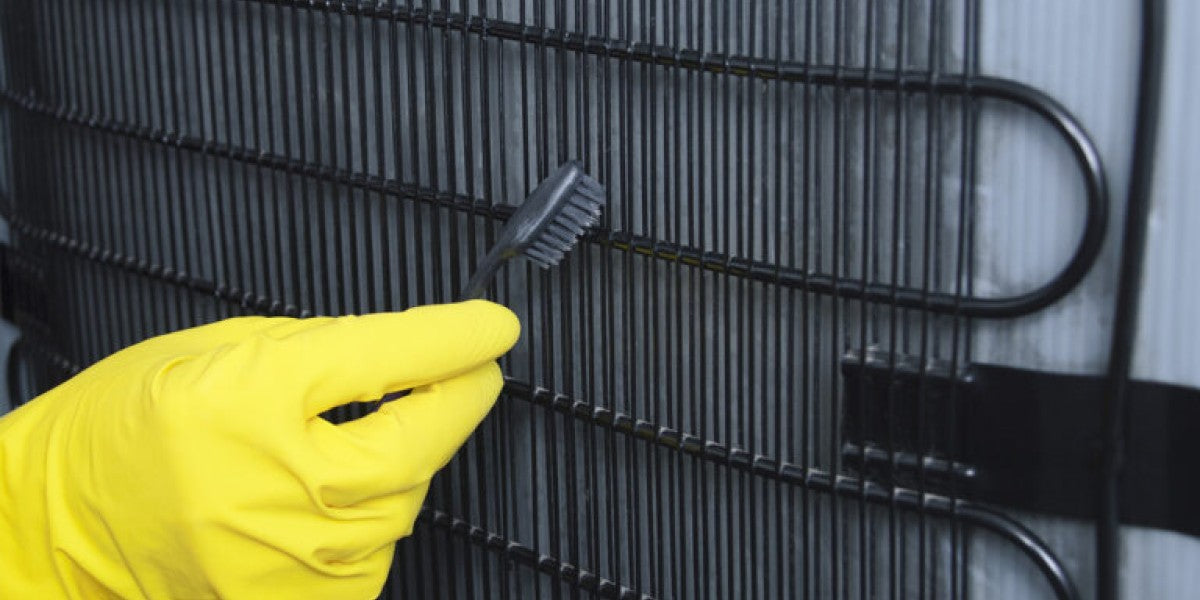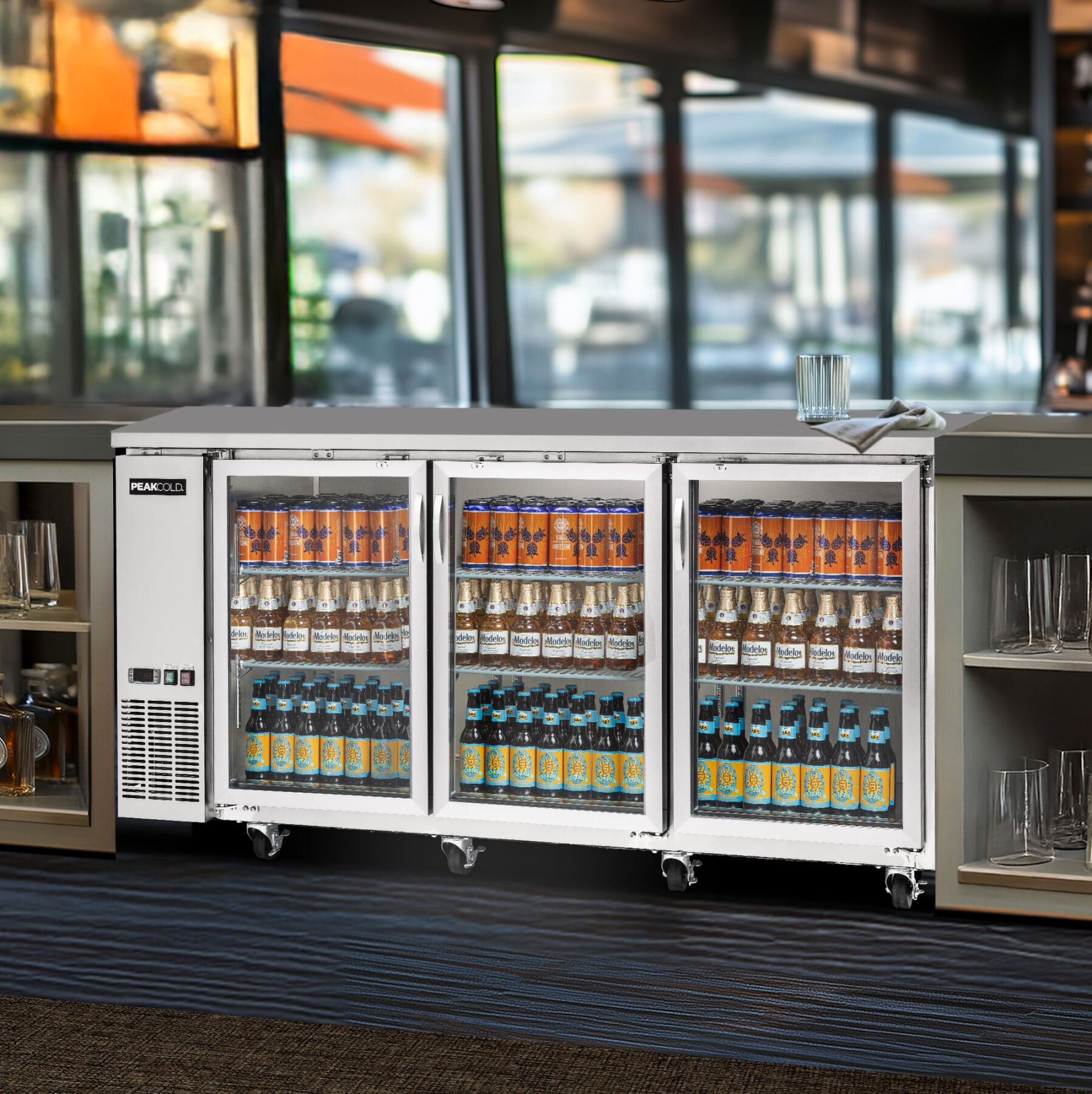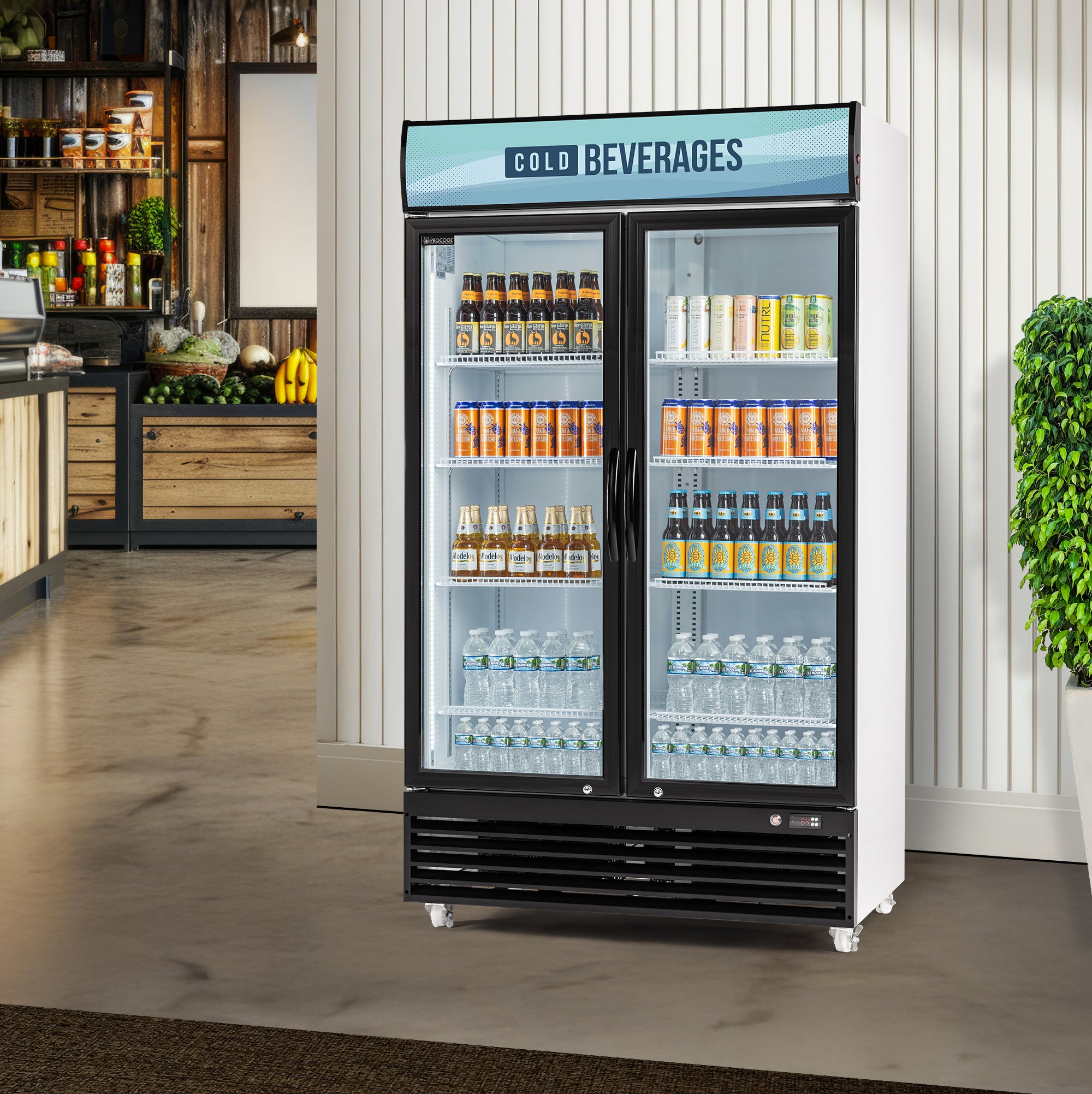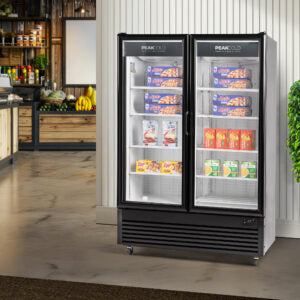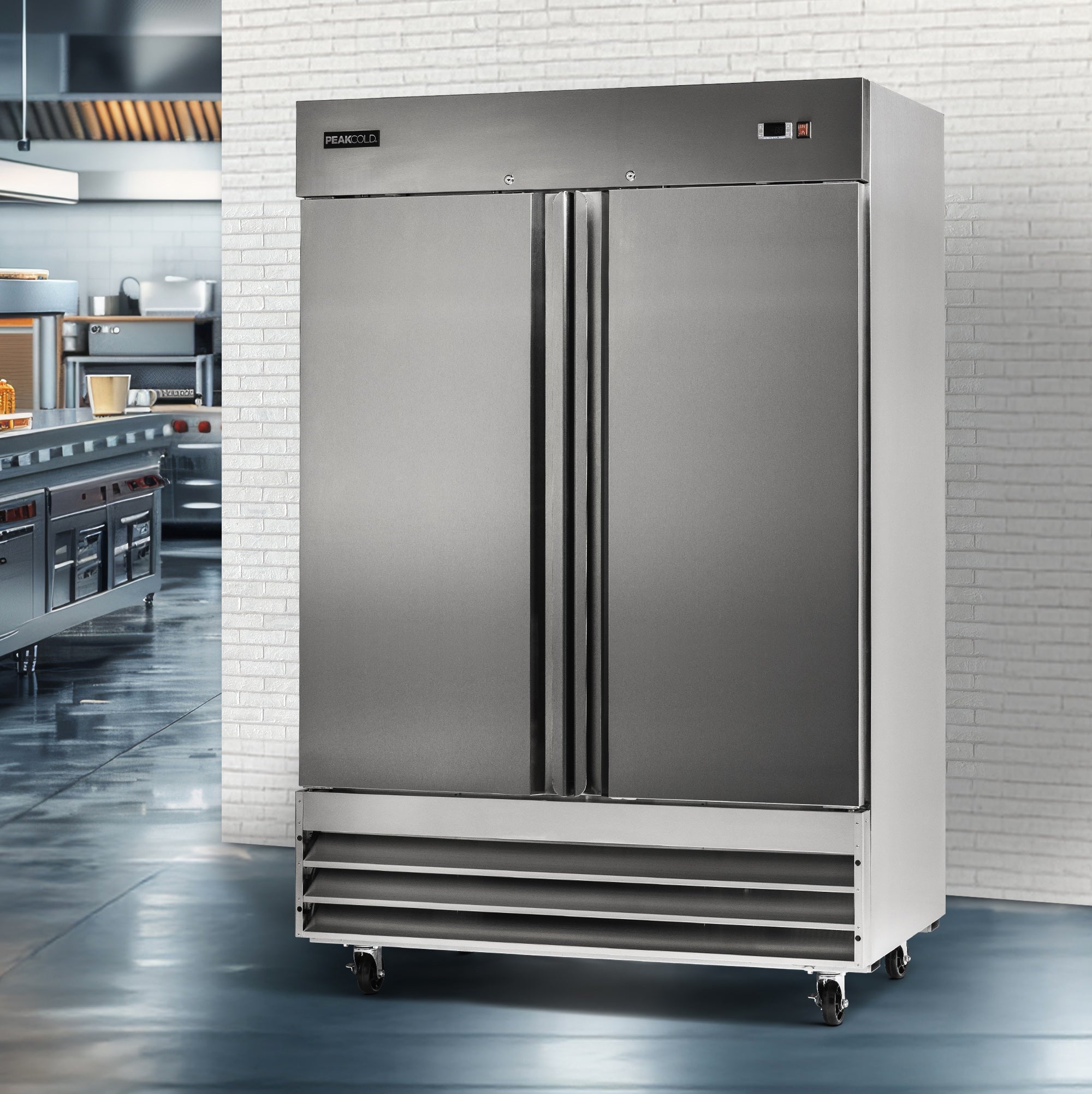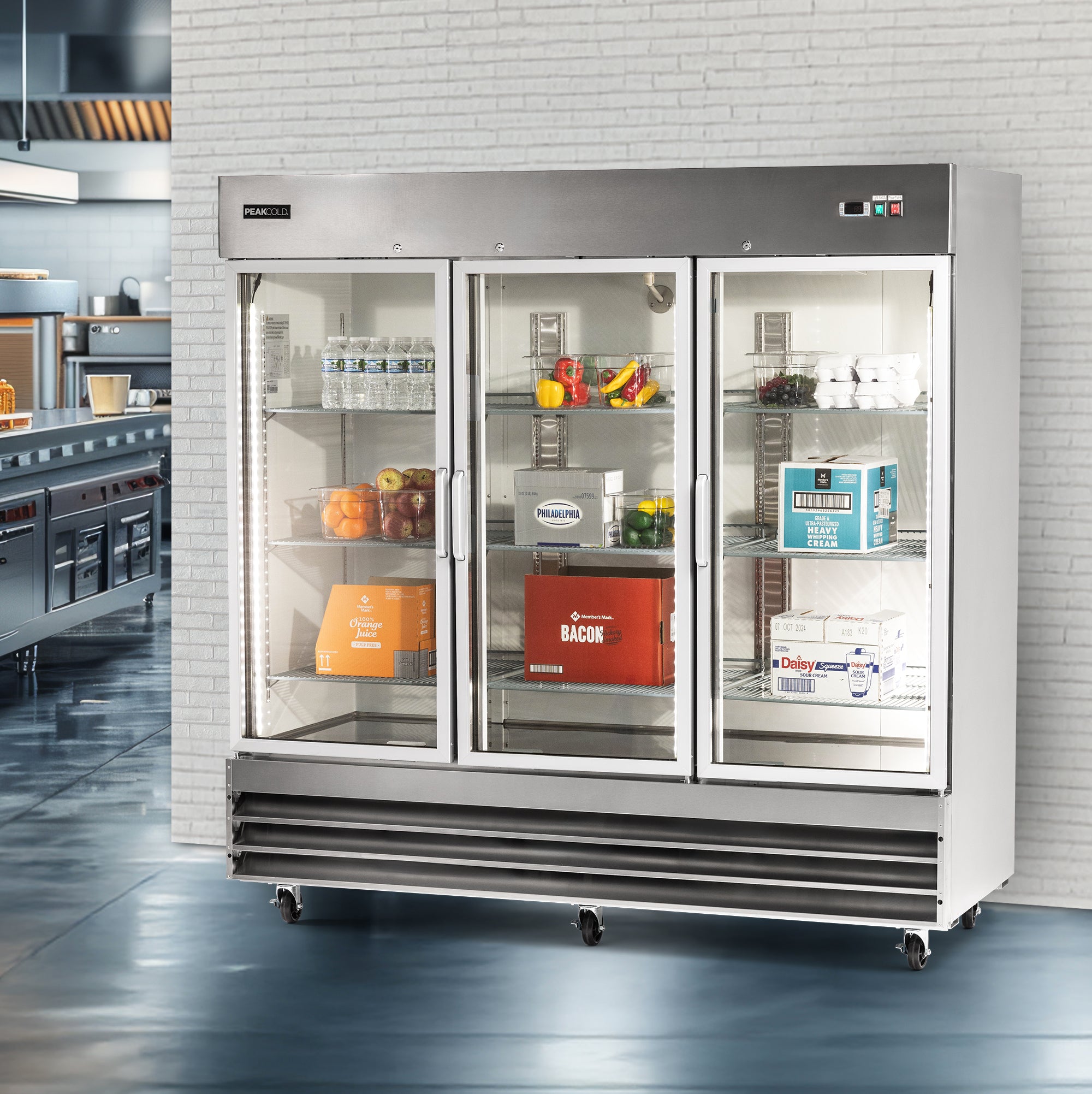If you run a business where products require refrigeration or freezing, you know how important it is to keep your commercial refrigeration equipment operating optimally. To set your business up for success, buy reliable and quality commercial refrigeration equipment with comprehensive warranties. To keep things running smoothly, you need to know how to maintain this equipment. Regular maintenance is key to preventing major breakdowns and food waste. Here are some DIY refrigerator maintenance tips:
1. Regularly clean the unit and surrounding area
Refrigerator care helps extend the life of your appliance. This includes cleaning a commercial refrigerator, both inside and outside. Clean any stains or spills in the units once or twice a week. Exterior spills should be cleaned before they find their way into an exposed part and cause it to malfunction. Remember to also clean underneath the refrigerator to prevent the growth of contaminants such as bacteria and mold. Clean the area around the refrigerator to avoid accidental slips and falls. When cleaning the unit’s exterior, always wipe up any excess moisture. Use a soft brush and warm water or a vinegar solution. Avoid abrasive scrubbers and chlorine cleaners. A baking soda paste can remove tough stains. Here’s how to clean with baking soda. To clean the inside of the unit, remove the items and place them in a temporary cooler while cleaning. Detachable drawers and shelves should be removed and soaked in water for a few minutes before rinsing.
2. Remember the condenser coils
It’s advisable to clean the condenser coils at least twice a year, but you can clean them more frequently. Be sure there’s no build-up of debris and dirt that could clog the coils and increase energy consumption. It’s cheaper to maintain clean condenser coils than it is to call a technician after something malfunctions.
3. Inspect the evaporator coil
The evaporator coil is located near the evaporator fan. It helps to absorb heat so that the interior stays cool. Turn off the power before cleaning the evaporator coil. Clean the fan and the surrounding area too. Regular cleaning helps the coil operate optimally for longer.
4. Clean tubing and drain pans
Larger freezers and refrigeration units often accumulate more slime and sludge. Sludge forms inside the drain pans and tubing, and build-up freezes up units and affects functioning. They can overflow and lead to a pungent smell throughout your kitchen. Clean the drain pans and tubing regularly with warm water and a soap or vinegar solution. Periodic inspections help to ensure there are no tubing blockages. Here’s how to unclog a drain tube.
5. Check door seals are tight
Door seals play a significant role in your commercial refrigeration units’ proper functioning. Split or cracked seals can prevent the door from fully closing. This lets cool air escape from the unit, which can lead to food spoiling. Even when there are no cracks or splits, routinely cleaning the seals keeps them in good condition. Grease and dirt can wear out the door seals over time. Every refrigerator has manufacturer recommendations for replacing broken door seals. You should replace the broken seal with one from the same manufacturer. It should also match with the unit’s model and serial number.
6. Check and clean air filters for build-up
In some commercial kitchens, dust and grease from fryers and griddles can affect air filters. This can prevent air from circulating properly, so regular cleaning is necessary. Use a degreasing solution to remove thick grease buildups or use a shop vacuum for loose debris and dirt. The unit’s service manual should contain guidelines on how to properly degrease the filter. Split filters should be replaced immediately before they cause more serious problems.
7. Maintain a clean ice maker
Some commercial refrigerators have ice makers, which need to be cleaned regularly. Ice makers can accumulate bacteria and mold, contaminating the ice itself and potentially other things the ice is served with or used in. Turn off the power and remove all ice before cleaning your ice maker. You can also call a technician to inspect the ice maker for any mechanical problems and clean it. Dirty ice not only looks unpleasant but you can be held liable if your customers suffer food poisoning, which can also hurt your business’s reputation.
Don't DIY electrical and mechanical issues
Some refrigerator maintenance problems, especially electrical and mechanical ones, require commercial-grade solutions and expertise. It’s not advisable to go the DIY route with these issues – it’s best to call in an expert.
Find Quality Equipment at the Right Price
With over a decade of experience, Iron Mountain Refrigeration is dedicated to supplying high-quality, dependable commercial refrigeration equipment. We pride ourselves on a five-star rating for customer service and comprehensive warranties, plus we offer free shipping to almost any location. Contact us if you have questions—we’re here to help!


